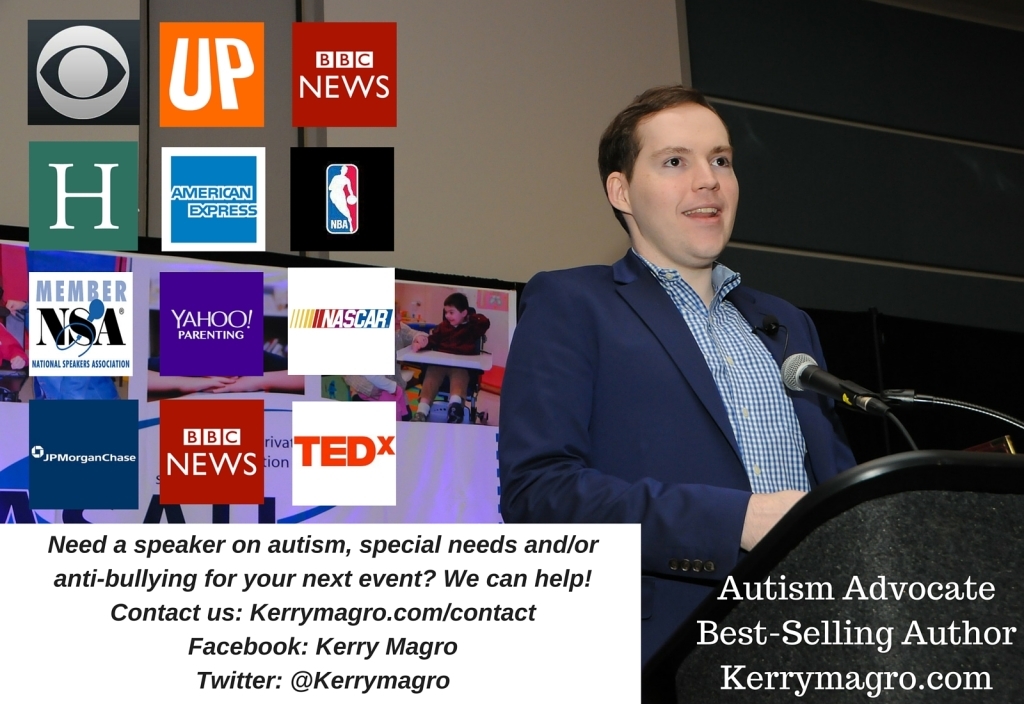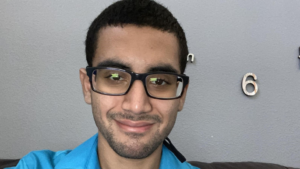This guest post is by Austin Gillum is a young man with high-functioning autism. He grew up as an Army brat moving around the United States and other parts of the world. He is finishing his junior year of college through the University of Maryland University College. Austin is applying for our Spring 2017 Making a Difference Autism Scholarship via the nonprofit KFM Making a Difference. You can read more about the organization and how to apply for our scholarship here.
My name is Austin Gillum, and I am an autistic young man who is on the verge of finishing my junior year in college. I was only 3 years old when I was diagnosed. The doctors who diagnosed me dismissed me as a hopeless case that my parents would be better off placing into the care of an institution. It turns out, however, that the doctors bet on the wrong horse.
Some elements that autistic people display from a young age are a tendency to obsess over certain topics as well as a strong preference for order. My earliest obsession, one that remains strong to this day, is animals. Many of my favorite movies, books, and other forms of entertainment involve animals to some degree. As a young child, I used to always line up my plastic toy animal models in a straight line, and in a very specific order. I didn’t take it well if so much as a single animal was removed or placed out of order.
I feel comfortable when I follow a schedule and have a general sense of order in my life. For example, I always make sure to try my best to get all work finished before devoting time to pleasurable activities; and even when I still have work to do, I need to take small breaks every now and then. I also prefer to work in an environment that is relatively peaceful and quiet. That way, I have fewer chances of distraction and can concentrate better. I am also an ardent stickler for following rules and prefer to have advance notice about changes in plans if at all possible. Finally, whenever I sort out books or movies that are part of a collection, I always prefer to sort them out in chronological order.
Another way my autism affects me is how I am more susceptible to sensory overload than people who don’t have autism. Sometimes I have to frequently adjust my clothes because they feel uncomfortable. While my sense of smell appears to be one of my relatively weaker senses, but I can still be affected by particularly strong smells. A case in point would be coffee, which I never had the chance to smell until I was a teenager, and have since come to hate smelling. Finally, when I am exposed to loud noises, I either wince in discomfort or end up slamming my hands over my ears and screaming. When I was young, there were many loud noises that bothered me.
One of the biggest defining elements of people with autism, however, is a very clear difficulty and lack of development in social skills. The blue ranger in the recent Power Rangers movie explained this quite well by saying that an autistic person’s brain works differently from the brain of a person who isn’t autistic. I tend to have difficulty looking people in the eye, have trouble expressing myself properly, and largely feel more comfortable when either alone or strictly around people I know and trust. Making friends is difficult for me, and some of my closest friends are people who have approached me first instead of waiting for me to approach them. I also feel varying degrees of discomfort when it comes to being touched by other people, I have difficulty in judging the best topics of discussion, and I need to be explicitly told when to stop talking. Paradoxically, I need to have time to think and process what people tell me, and can get overwhelmed and lose track of what people are saying if they are speaking at rapid speeds or don’t give me time to think before saying something else. I am also rather literal-minded and follow the Horton the Elephant philosophy of meaning what I say and saying what I mean. This leads to trouble in differentiating between sincerity and sarcasm. Typically, I am very open and not one to hide how I feel about something. When I feel a strong emotion, both my voice and body language clearly communicate how I’m feeling. Finally, unless I am given sufficient time to think something over and change my mind, any decision I make is usually final. If I say yes, I mean yes; and if I say no, I mean no.
Despite these problems that autistic people face, it doesn’t mean they are incapable of functioning in society. With my knowledge and determination, I’ve managed to succeed in school all the way to attending college for a bachelor’s degree. Granted, I’ve had help from tutors, aides, legally granted accommodations, and even an IEP for the majority of my school career. I have also made a handful of very close friends who accept me as I am and whom I wouldn’t trade for the world. Finally, not only does my family accept me as well, but they’ve also helped me work to adapt and become more independent. Most importantly, no matter how much pain, sadness, and difficulty has arisen in my life because of my condition, I have always managed to adapt and pull through. In the end, through and through, I am accepting and proud of myself as I am, autism and all. And if I can pull a dark horse victory like this, then it stands to reason that so can other autistic people similar to me. As difficult as this condition is, autistic people don’t have to let their diagnoses define them. With sufficient help and determination, they can manage their autism and prove themselves.

Kerry Magro, an international motivational speaker and best-selling author started the nonprofit KFM Making a Difference in 2011 to help students with autism receive scholarship aid to pursue a post-secondary education. Help us continue to help students with autism go to college by making a tax-deductible donation to our nonprofit here. Also, consider having Kerry who travels around the country speaking about his journey on the autism spectrum at your next event by contacting him here.














